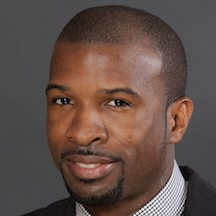 A new study led by LaRon A. Scott, an assistant professor in the department of counseling and special education at Virginia Commonwealth University, offers strategies school districts can use to recruit and retain Black male teachers in special education programs.
A new study led by LaRon A. Scott, an assistant professor in the department of counseling and special education at Virginia Commonwealth University, offers strategies school districts can use to recruit and retain Black male teachers in special education programs.
According to Dr. Scott and his co-author, Quentin Alexander, an assistant professor of counseling education at Longwood University in Virginia, Black boys labeled with a disability are subjected to poor educational outcomes. And in special education, there is a smaller ratio of Black male teachers based on the disproportionately larger rate of Black students, particularly Black boys, enrolled in special education classes. For thousands of Black students in special education, they could go through their entire K-12 education without having a Black male teacher. As a result, students solely rely on their academic, social and interpersonal needs being met by special education teachers who represent racial and gender backgrounds that may be widely different.
In the paper the authors develop a strategy for increasing the number of Black male teachers who pursue careers as special education teachers. The strategy involves developing specific motivations for Black men to become special education teachers as well as focused strategies for recruitment and retention of Black males for these positions. They call for school districts to devote funding for these recruitment and retention programs and to offer mentors to the Black male teachers that are recruited.
Dr. Scott is a graduate of Radford University in Virginia. He holds a master’s degree in special education from Virginia Commonwealth University and an educational doctorate from Walden University.
The full study, “Strategies for Recruiting and Retaining Black Male Special Education Teachers,” was published on the website of the journal Remedial and Special Education. It may be accessed here.


Maybe the presence black male special education teacher could provide an inverse effect to counter the utter dismissal and bias actions from white female educators who are mostly responsible in placing black boys in special ed in the first place.
Yes, black boys in special education do have a profound effect on their education. Since special education placement is a place of isolation from the rest of the school population, I view it as a holding place until they enter the real world and are placed in the real penitentiary.
In other words–the school pipeline.